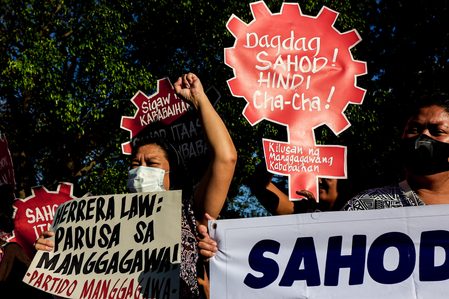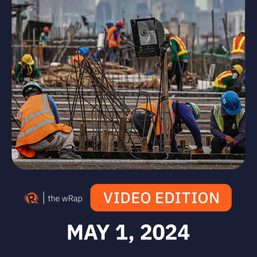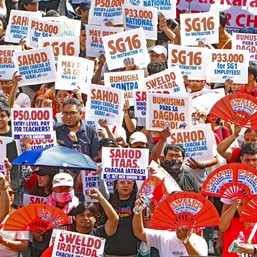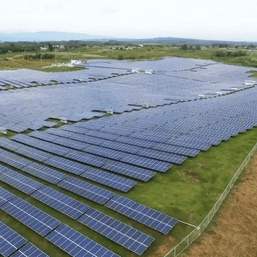SUMMARY
This is AI generated summarization, which may have errors. For context, always refer to the full article.
![[ANALYSIS] A new advocacy in race to financial literacy](https://www.rappler.com/tachyon/2024/04/advocacy-race-financial-literacy-April-19-2024.jpg)
We continue to face the prospects of being left behind in the race to break free from our low level of financial literacy that has, in many ways, left us behind in economic standing among our Southeast Asian peers.
Having raised this concern to the national consciousness presently, a new front was created lately in the launching of yet another private initiative to bridge the financial literacy gap among the populace.
The new initiative, however, is a notch higher in terms of its strategic goal compared to the various educational paradigms already rolled out by the government and the private sector with its advocacy. It’s focused on further enhancing the ability of the general public to make better and informed financial decisions, especially in the field of managing and investing their money.
The Monday Circle Financial Forum
The new initiative is called the “Monday Circle Financial Forum,” which meets on said day at the Westin Manila, located at Ortigas Center in East Mandaluyong, Metro Manila.
It is composed of people from a cross-section of the stockbrokerage and investment banking industry, the private business sector (representing both listed and non-listed companies), relevant agencies of the government and the media.
The forum’s membership serves as the wellspring of information and also the source of references for the intelligent discussion of various topics or issues affecting the financial circumstances of the general public.
With such mechanism, the forum hopes to crystalize its objectives in fostering financial literacy particularly in the development of a well-informed and intelligent investing public that may, at the same time, lead to the promotion and further development of the capital market that is contributary to a sustainable and equitable financial system.
The Monday Circle Financial Forum is also in the process of finalizing a partnership with Rappler, the host of this column, being the ideal top online website to deepen its reach at the same time benefit from the latter’s expertise “as an online watering hole that is secure, safe from opaque algorithms, and tied to news and information that could have an impact on the economy and investment landscape.”
Watch out for further details on how to be a part of the community of the Monday Circle Financial Forum.
Incisive first interaction
The first guest speaker of the Monday Circle Financial Forum in its debut the other week is the chair of the ways and means Committee of the lower house of Congress, Albay 2nd District representative Joey Sarte Salceda.
Salceda took the occasion to walk the membership through his strategy in how government could meet the challenges for an increased minimum wage, grapple with inflation, increased productivity, find alternative tax and non-tax sources of funds to compensate loss revenues in favor of some growth incentives, welfare support for a growing senior population, and the development of the capital market as an added engine for overall economic growth.
A pro-labor and proponent for higher wages, Salceda made an incisive discussion on how business could shoulder a minimum wage of P1,000 per day, with government support without sacrificing its growth targets.
Based on present findings that the living wage for a family of five is estimated at P23,787 per month, the minimum wage of P1,000 per day, accordingly, should leave the worker with some savings for decent retirement, healthcare, housing and, possibly, in growing further financially.
One way to do this, according to him, is to help business be able to afford it by lowering power costs to P7 per kilowatt-hour.
Salceda bares his efforts for the passage of the CREATE MORE Act to enable businesses to afford the planned P1,000 per day minimum wage. He explained that “there is a 200% enhanced deduction on power costs, up from the 150% deduction under the current CREATE Law.”
Salceda further stated, “that the enhanced deduction system is also made more attractive to firms in general by reducing the applicable CIT (corporate income tax) rate from 25% to 20%, and shift away from the five percent Special Corporate Income Tax or SCIT regime, which almost certainly is not compliant in countries that have adopted the global minimum corporate tax.”
Along with the above measures, Salceda also declared that he has come up with an entire package of strategies to boost energy supply and lower power costs.
For instance, on top of allowing 100 percent foreign ownership in the renewable energy generation sector, Salceda is pushing for bringing back the use of nuclear power, which is considered a cost competitive source of energy, including the rehabilitation of existing facilities like the Agus-Pulangi Hydropower Complex. Salceda sentimentally recollected that the hydropower complex practically created a steel refining industry for the country during its heyday.
Salceda identified PSALM as the government instrumentality for this playbook. He said PSALM is one of the country’s greatest fiscal success stories, remembering that “PSALM was able to reduce the country’s power sector liabilities from a peak of P1.3 trillion to just P276 billion today.”
Another way to make real wages high aside from resorting to legislating nominal wage hikes, according to Salceda, is to keep food prices cheap.
Salceda presented a plethora of action plans in this regard. One is to focus on the livestock, poultry and diary (LPD) sector. As Chair of the technical working group on the Livestock, Poultry, Dairy, (LPD) and Corn Competitiveness Act, he noticed that “the LPD sector is now larger than rice, even though it occupies less land and takes up much less of the national budget.” He also went on to say that “Every taxpayer peso invested in the palay sector yield P15.17 worth of production. For livestock, that ratio is P48.9. For domestic corn, the ratio is even higher, at P77.”
Another is to liberalize the ownership of land to free up the agricultural value chain. He was disappointed that in 2022, total approved Filipino and foreign investments in agriculture was just P3.8 billion. We cannot make food cheap with such levels of underinvestment, Salceda fulminated.
Next, is to work on our poor logistics, infrastructure, and post-harvest facilities. He said that logistics in the Philippines “accounts for 32.87% of the cost of food, compared to 17.6% in Vietnam, 21.0% in Indonesia, which is also archipelagic, and 10.3% in Thailand.”
Fiscal management is another. Salceda lamented that government spending grew only by 0.4% last year, which is in no way could help in boosting economic growth. We are underspending, Salceda warned.
On the capital market as a dynamic institution for the welfare of a growing senior population and another crucial engine for economic growth, Salceda appealed for the immediate approval of the reduction of the stock transaction tax. He said that this alone can send a strong-enough signal to the market that the Philippines is open for business. Wryly, he added, that there is no way a dormant capital market can support pension fund growth or health insurance fund growth.
For lack of space, a copy of Salceda’s speech can be secured from the forum’s secretariat to read more on the details of his proposition for alternative tax and non-tax sources of funds to compensate loss revenues in favor of some growth incentives at the same time bolster the government drive for higher economic growth. – Rappler.com
The article has been prepared for general circulation for the reading public and must not be construed as an offer, or solicitation of an offer to buy or sell any securities or financial instruments whether referred to herein or otherwise. Moreover, the public should be aware that the writer or any investing parties mentioned in the column may have a conflict of interest that could affect the objectivity of their reported or mentioned investment activity. You may reach the writer at densomera@yahoo.com.
Add a comment
How does this make you feel?






![[ANALYSIS] Search for stocks that continue to sizzle](https://www.rappler.com/tachyon/2024/04/search-stocks-that-sizzle-April-5-2024.jpg?resize=257%2C257&crop_strategy=attention)


![[ANALYSIS] Concern about the right trading call during Holy Week](https://www.rappler.com/tachyon/2024/03/Concern-about-right-trading-holy-week-March-22-2024.jpg?resize=257%2C257&crop_strategy=attention)
There are no comments yet. Add your comment to start the conversation.